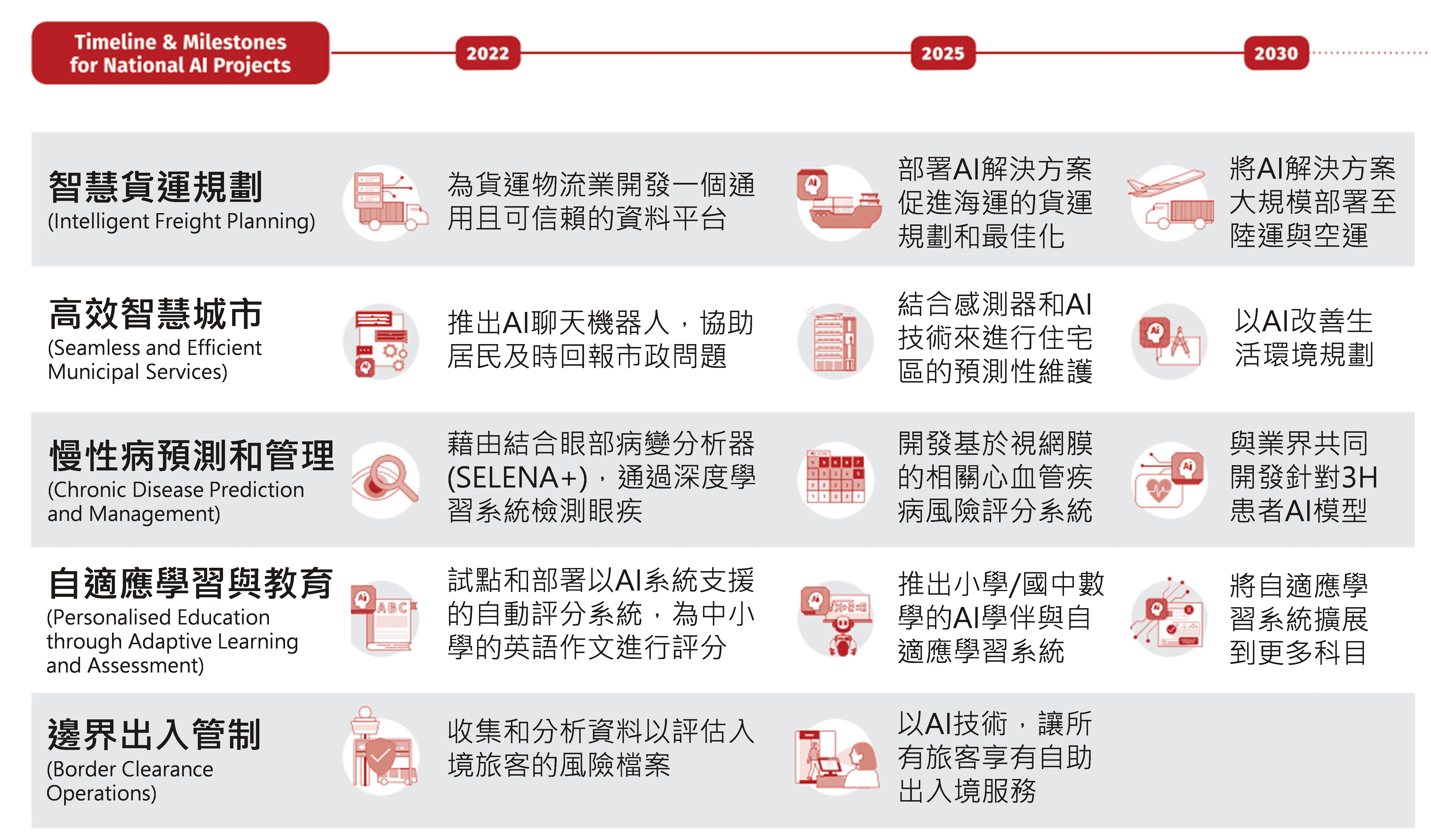2023 Singapore AI Development Policy Research: Singapore focuses on the needs of specific vertical fields when developing AI solutions

Source: The National AI Strategy of Singapore, summarized by the AI HUB Project, November 2023
Singapore has been committed to developing a smart nation since 2005, formulating strategic blueprints such as "Intelligent Nation 2015 (iN2015)" and "The Smart Nation Initiative 2015." It has successively launched a number of AI policies and plans, which aim to fully utilize technological innovations to develop Singapore into leader in AI. In 2019, Singapore formulated the 11-year National AI Strategy and proposed a 2030 vision, hoping to become a leader in AI solutions in important fields. The strategy also pays special attention to promoting AI applications in key industries, such as transportation, manufacturing, and finance. Singapore is also committed to cultivating the AI ecosystem and is concerned about the social risks that AI may bring. At this point, Singapore’s AI policy framework is practically set.
Singapore's "National AI Strategy" mainly consists of two parts, namely the "National AI Project" and "creating an AI ecosystem." By focusing on the deployment of AI models in key industries and incorporating the spirit of human-centered AI governance, Singapore has achieved an AI development path that takes into account both supervision and innovation. The National AI Project refers to selecting key industries that have a high impact on Singapore's society and economy, and giving priority to the development of AI solutions. The current five major projects are: "Intelligent Freight Planning," "Seamless and Efficient Municipal Services," "Chronic Disease Prediction and Management," "Personalized Education through Adaptive Learning and Assessment," and "Border Clearance Operations." The projects above also show that Singapore will prioritize the development of AI applications in key industries, such as transportation and logistics, healthcare, education, and national defense. Creating an AI ecosystem refers to how to facilitate Singapore's AI innovation and implementation methods. At present, it has set five main goals, namely: Facilitate industry-government-academia-research partnerships to realize AI commercialization, meet the demand on talent through AI education and cultivating AI talents, create a complete data structure to achieve cross-industry high-quality databases, and create a trustworthy AI environment to reduce concerns when implementing AI technology, and actively engage in international cooperation to get a say in international AI.
In summary, Singapore’s AI development strategy not only focuses on industrial development and technology, but also attaches great importance to cultivating competitive AI talents and ecosystems. This strategy of combining technology development and talent cultivation is also worth referencing in Taiwan’s subsequent development of AI.